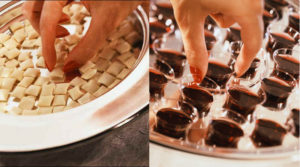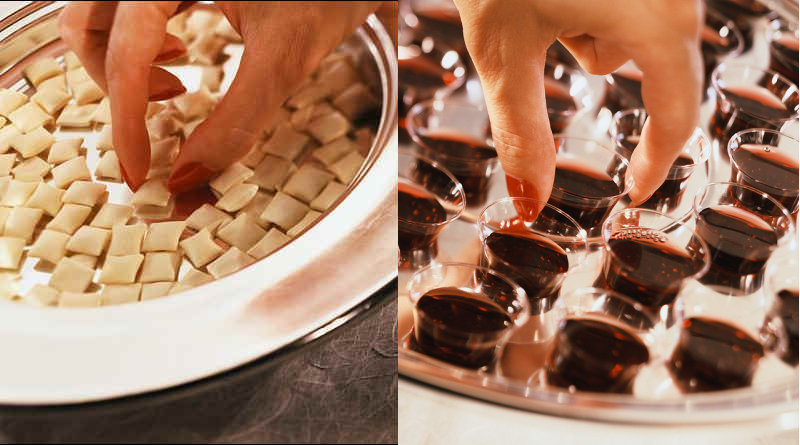Answering Questions about the Lord’s Supper
Podcast: Play in new window | Download
Subscribe: RSS
 TITLE: Answering Questions about the Lord’s Supper
TITLE: Answering Questions about the Lord’s Supper
SUBJECT: The Lord’s Supper
PROPOSITION: In this lesson, we will answer questions about the Lord’s Supper.
OBJECTIVE: Each listener should be able to answer why we partake of the Lord’s supper every Sunday and why we use unleavened bread and grape juice.
INTRODUCTION:
1. Read: 1 Corinthians 11:23-26
2. About the Text:
1) The Lord’s supper was intended to be a central aspect of worship as the church.
2) It is to be done in the way and manner the Bible describes.
3. Ref. to S, T, P, O, and A.
DISCUSSION:
I. Worship Must be Conducted by God’s Authority
1. We want to respect God’s authority in our worship.
1) “But the hour is coming, and now is, when the true worshipers will worship the Father in spirit and truth; for the Father is seeking such to worship Him. God is Spirit, and those who worship Him must worship in spirit and truth” (John 4:23-24).
2) “Finally then, brethren, we urge and exhort in the Lord Jesus that you should abound more and more, just as you received from us how you ought to walk and to please God; for you know what commandments we gave you through the Lord Jesus” (1 Thess.4:1-2).
3) “And whatever you do in word or deed, do all in the name of the Lord Jesus, giving thanks to God the Father through Him” (Colossians 3:17).
4) “Therefore, whether you eat or drink, or whatever you do, do all to the glory of God” (1 Corinthians 10:31).
5) “Whoever transgresses and does not abide in the doctrine of Christ does not have God. He who abides in the doctrine of Christ has both the Father and the Son” (2 John 1:9).
2. The Lord’s Supper is an act of worship.
1) “The cup of blessing which we bless, is it not the communion of the blood of Christ? The bread which we break, is it not the communion of the body of Christ?” (1 Corinthians 10:16).
2) We are focusing our thoughts on Jesus, the Son of God, God in the flesh.
3) “In the beginning was the Word, and the Word was with God, and the Word was God” (John 1:1).
4) As we focus our thoughts on Jesus, we are worshiping God.
5) “Therefore whoever eats this bread or drinks this cup of the Lord in an unworthy manner will be guilty of the body and blood of the Lord. But let a man examine himself, and so let him eat of the bread and drink of the cup. For he who eats and drinks in an unworthy manner eats and drinks judgment to himself, not discerning the Lord’s body” (1 Corinthians 11:27-29).
3. Jesus has spoken about the Lord’s Supper.
1) “And as they were eating, Jesus took bread, blessed and broke it, and gave it to the disciples and said, “Take, eat; this is My body.” Then He took the cup, and gave thanks, and gave it to them, saying, “Drink from it, all of you. For this is My blood of the new covenant, which is shed for many for the remission of sins. But I say to you, I will not drink of this fruit of the vine from now on until that day when I drink it new with you in My Father’s kingdom.”” (Matthew 26:26-29).
2) “For I received from the Lord that which I also delivered to you: that the Lord Jesus on the same night in which He was betrayed took bread; and when He had given thanks, He broke it and said, “Take, eat; this is My body which is broken for you; do this in remembrance of Me.” In the same manner He also took the cup after supper, saying, “This cup is the new covenant in My blood. This do, as often as you drink it, in remembrance of Me.” For as often as you eat this bread and drink this cup, you proclaim the Lord’s death till He comes.” (1 Corinthians 11:23-26).
3) Would we use apple pie instead of unleavened bread? Why not?
4) Would we use sweet tea instead of fruit of the vine? Why not?
II. Why partake of the Lord’s Supper on Sunday and every Sunday?
1. In 1 Corinthians 11:23-26 there is an expression, “as often as.”
1) It is one Greek word, hosakis.
2) The word indicates something that is repeated regularly and in intervals.
3) What is the interval that the Lord’s Supper is to be repeated?
2. The Lord’s Supper was first observed on the day of Pentecost, a Sunday.
1) “And they continued steadfastly in the apostles’ doctrine and fellowship, in the breaking of bread, and in prayers” (Acts 2:42).
2) The expression “breaking of bread” refers to what Jesus did in establishing the Lord’s Supper.
3. It was then regularly observed each week on Sunday.
1) “Now on the first day of the week, when the disciples came together to break bread, Paul, ready to depart the next day, spoke to them and continued his message until midnight” (Acts 20:7).
2) The first day of the week, was a Sunday.
3) This was the regular time that the disciples came together to “break bread,” that is, to observe the Lord’s Supper.
4. The church observed the Lord’s Supper as a congregation.
1) 1 Corinthians 11:17, 18, 20, 33, 34 all show that the church came together to observe the Lord’s Supper.
2) When did they come together?
3) Acts 20:7 and 1 Corinthians 16:2 talk about the first day of the week.
5. Why Sunday?
1) This was the day that Jesus rose from the grave.
2) “Now when He rose early on the first day of the week, He appeared first to Mary Magdalene, out of whom He had cast seven demons” (Mark 16:9).
3) Matthew 28:1, Mark 16:2, Luke 24:1, John 20:1 all say Jesus was resurrected on the first day of the week.
6. Revelation 1:10 – “I was in the Spirit on the Lord’s Day….”
CONCLUSION:
1. To answer questions about the Lord’s Supper we must . . . .
1) Recognize God’s Authority
2) Follow the Teaching and Example of Jesus and the Apostles
2. Invitation

